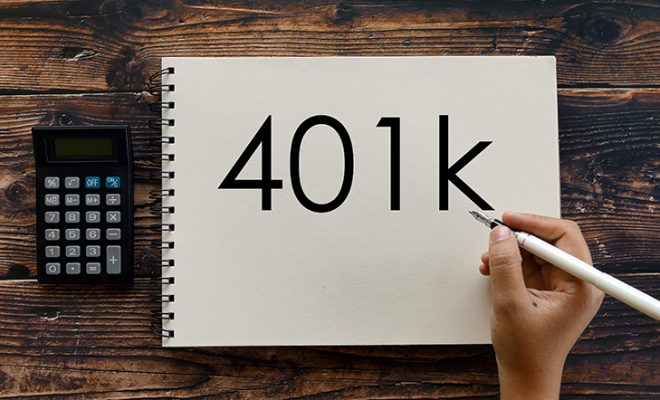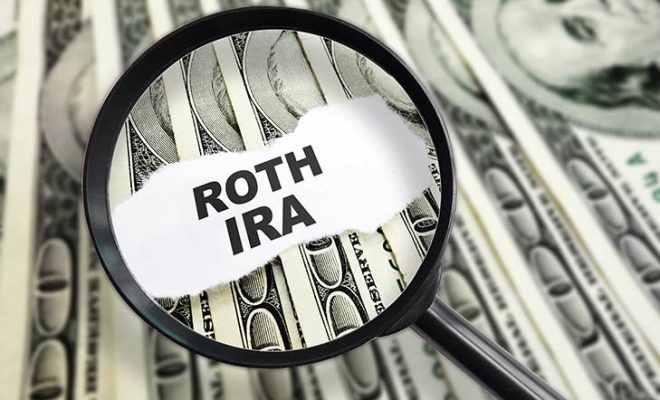Most Common Myths about Borrowing from your 401(k)

Today, the 401(k) savings account is the primary retirement vehicle for a large number of Americans. This savings plan accounts for a large sum of their personal wealth. As per Fidelity’s report in 2020, over 441,000 401(k) or IRA accounts that the company manages have balances of at least $1 million. To get the most out of these 401(k) accounts, it is best to let your funds accumulate over a reasonable time to unleash the power of compounding. Sometimes, emergencies or unexpected events might require you to withdraw from these savings for the lack of a better option even though early withdrawing will lead to tax penalties. While you may consider talking a loan against your 401(k) balance be wary of the myths surrounding burrowing from your 401(k).
Myth 1: There is never a good reason to borrow from your 401(k) account
Even though there are multiple pros and cons of taking a loan from a 401(k) savings account, the suitability depends on a case-to-case basis. Generally, borrowing from your 401(k) is not a good idea. But in case of financial emergencies, you may not find any bank or institution that offers such flexible and easy loan terms as a 401(k) account. Moreover, in case of immediate emergencies, when you require easy and urgent cash, you can always consider 401(k) account loans, provided your credit precludes you from getting a loan from another institution at a competitive rate. Further, in situations where your existing high-interest debt payment is causing significant issues in long-term financial goals, it might be a good idea to borrow funds from your 401(k) account and pay off the debt. However, you must first evaluate if the interest rate on your 401(k) loan is lower than your debt creditors rate. Also, always remember that the savings you take from your retirement account will not be able to earn you more money until after it is reimbursed.
Myth 2: You can take your entire 401(k) savings as a loan
Most people think that since the 401(k) savings are their contributions, they are permitted to borrow as much as they need or even the whole of it. However, as per the IRS (Internal Revenue Service) mandates, the maximum amount you can borrow from your 401(k) account is $50,000 or 50% of the total vested amount in the plan. In some companies, the employers can also state minimum loan amounts you may qualify to borrow. Under the CARES Act, the IRS increased the 401(k)-loan limit to $100,000 or 100% of vested balance, whichever is less, for people who suffered financial losses because of COVID-19. This provision was applicable until September 22, 2020. When you take an advance from your 401(k), you will need to sign a loan agreement, which would mention the principal amount, the terms of the loan, the interest rate, any additional fees, and other conditions about the agreement. Moreover, in some cases, the loan might have eligibility criteria, but mostly the process is fairly simple, and you can easily qualify. Additionally, if you are married, you might require to get your spouse to agree to the loan in writing.
Myth 3: There are no interest payments since it is your own money
401(k) funds are indeed your money. However, these are retirement savings accounts, which come under the purview of the IRS. You avail tax advantages on these funds, as well as your employer may also be contributing a share to these savings, hence, technically, there are multiple stakeholders. When you take any loan from your 401(k), you are liable to pay an interest charge. Generally, this interest rate is one point above the prime interest rates. But the exact rate varies from company-to-company. As of March 2020, the prime rate is 3.25%. So, a 401(k) loan in 2020 can carry an interest rate of 4.25%. In some cases, the interest rate of a 401(k) loan might be so high that it can make the rate comparable to that of a conventional loan, thereby dulling the lending attractiveness of a 401(k) loan. In such a case, even if you are paying interest to yourself, you are also hurting your future retirement savings. Moreover, you would need to repay the loan amount in five years, except if you are taking the money to buy or build your primary residence. In the latter case, the loan repayment tenure can be 25 years, or you can opt for a shorter tenure if you can repay the amount sooner. The CARES Act allows qualified debtors up to an extra year to repay their 401(k) loans.
SPONSORED WISERADVISOR
Myth 4: You can borrow and never pay back if you leave your job
Some 401(k) account holders may assume that they can borrow from a company and then resign to get away with the loan. However, the truth is that 401(k) loan terms get complicated in such situations. If you quit your job or are fired after you borrow money from your 401(k) account, you might have to pay the entire balance within 60 days. According to the new tax laws, in such cases, the 401(k) borrowers have until the last date of their federal income tax return filing to pay back their outstanding balance. Failure to do so will make the borrowing a taxable distribution, which will attract a penalty. As a general word of caution, it is always advisable to take a loan while keeping your debt-to-income ratio in mind. Never take a debt that you cannot repay. Ideally, no more than 36% of your total monthly income should be used to pay your liabilities.
Myth 5: You can borrow from an old 401(k) account
If you are no longer working for a company where you have a valid 401(k) plan, you cannot take any new loan against the account unless your plan specifically permits it. Instead, you would need to transfer the balance from your old 401(k) plan to your new employer’s 401(k) account, and if your present company allows it, then you can borrow funds. However, if you choose to direct your old 401(k) savings into an IRA (Individual Retirement Account), you cannot take debt from the IRA. Hence, it is always beneficial to check all terms and conditions before you cash out, transfer, or take credit from your 401(k) account.
Myth 6: You will pay double taxes on the loan amount
When you borrow funds from your 401(k) plan, there are no immediate taxes. The IRS levies a tax when you pay off the loan amount. So, unlike 401(k) contributions, the loan repayment is after-tax. But as soon as you pay back the money, the amount is considered pre-tax, and therefore, you pay taxes again later in life when you withdraw the money. However, it is critical to note that the loan amount is not double taxed, only the interest dollars are taxed twice.
To sum it up
It is prudent to evaluate if a 401(k) loan is a better option, as compared to financial assistance from elsewhere. Ideally, using a 401(k) for entertainment or other unnecessary purposes is not recommended. However, borrowing from your 401(k) can be beneficial if it is made for the right reasons and under the right financial situations. Whatever may be the case, if you choose to borrow funds, pay it off in time and in full. Moreover, avoid borrowing more funds than you need and continue saving for retirement. If you want expert guidance, you can always consult professional financial advisors to make the right decision.










